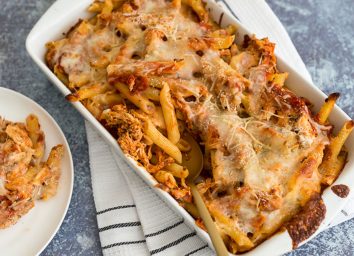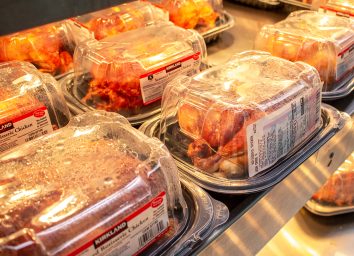Side Effects of Giving Up Chicken, According to Science
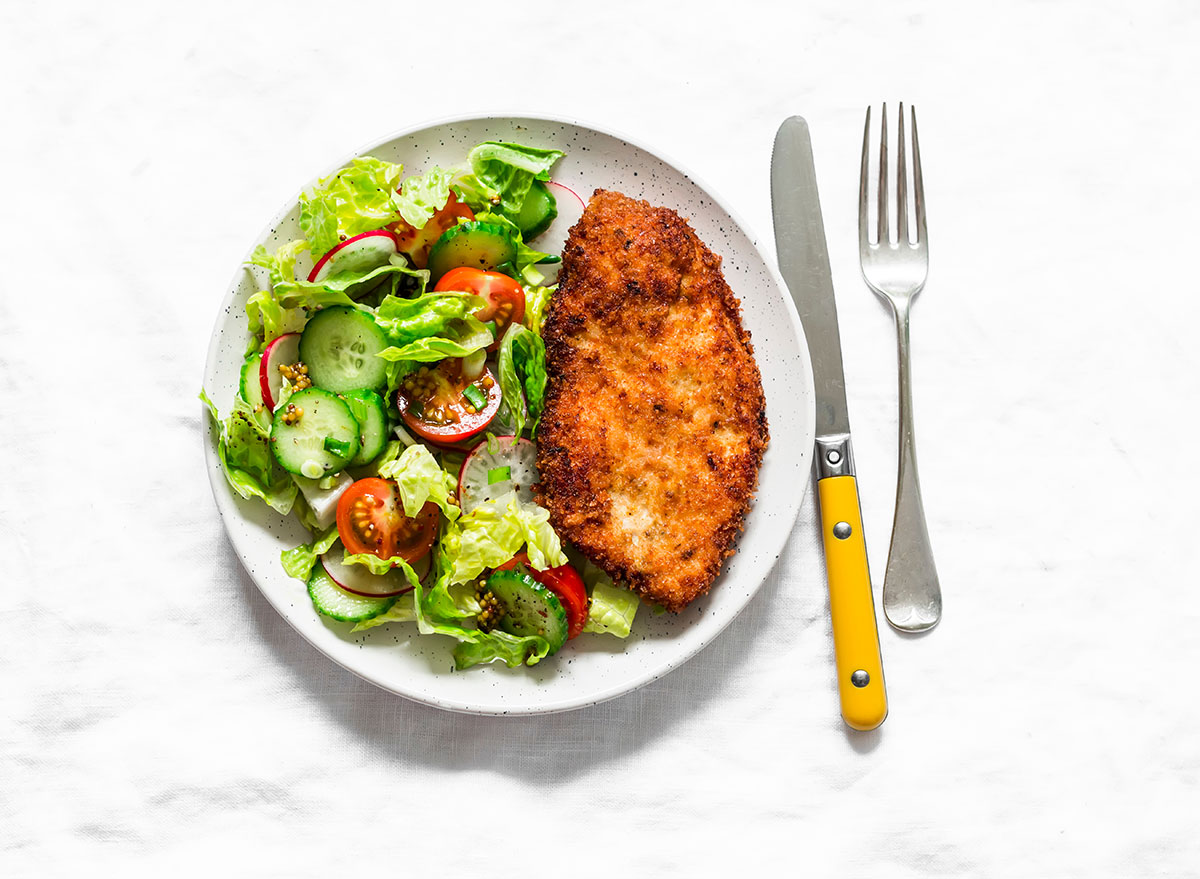
Without a doubt, chicken is the most popular meat in America—in fact, it makes up 43% of all meat consumed in the U.S. Even though it may be a convenient, relatively affordable form of lean protein, there are a wide range of reasons why you may decide to stop eating it. For example, you might make this decision over concerns about animal cruelty concerns, to lighten your carbon footprint, or for health-related reasons. Regardless of why you make the choice, there are some side effects you should know about because giving up chicken comes with both positive and potentially negative consequences.
Let’s start with the obvious: Chicken is an excellent source of key nutrients, such as niacin, phosphorus, protein, selenium, and vitamins B6 and B12. Protein not only helps you to feel satiated, but it’s also crucial for building and repairing muscle tissue. That means that if you’re forfeiting chicken, you’ll definitely want to be mindful about replacing it with another high-quality protein source, as well as foods that contain those same essential vitamins and minerals.
There are lots of other considerations to take into account, too—so here’s what to expect. If chicken isn’t the only animal protein you’re giving up, be sure to read up on What Happens to Your Body When You Stop Eating Meat.
Your body might run low on B vitamins.
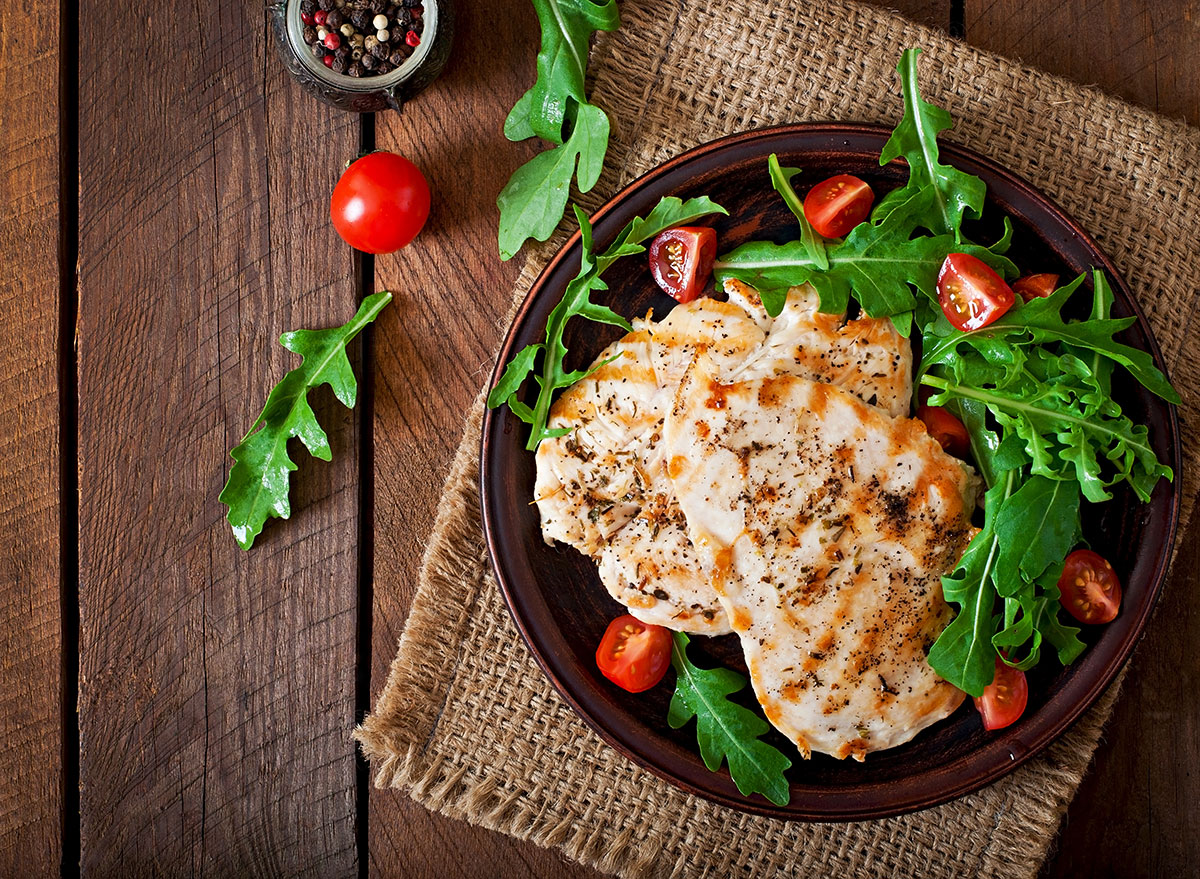
Chicken is chock-full of B vitamins—in fact, one 3-ounce serving contains a whopping 51% of your RDA of niacin (vitamin B3), 16% of the RDA of vitamin B6, and 10% of the RDA of vitamin B12. Niacin is important for brain health—it helps to keep your metabolism and nervous system working properly, and it’s also used for antioxidant protection. Vitamin B6, meanwhile, plays a critical role in ensuring your immune system is strong, and vitamin B12 is used to make DNA, red blood cells, and nerves.
But did you know that your body cannot produce niacin, vitamin B6, or vitamin B12 on its own? The only way to get these essential micronutrients is to eat foods that contain them. That means that after giving up chicken, you may run into a deficiency—that is, unless you make sure to eat other foods rich in B vitamins, such as eggs, legumes, nutritional yeast, and fortified cereals and dairy products.
Your gut will be grateful.
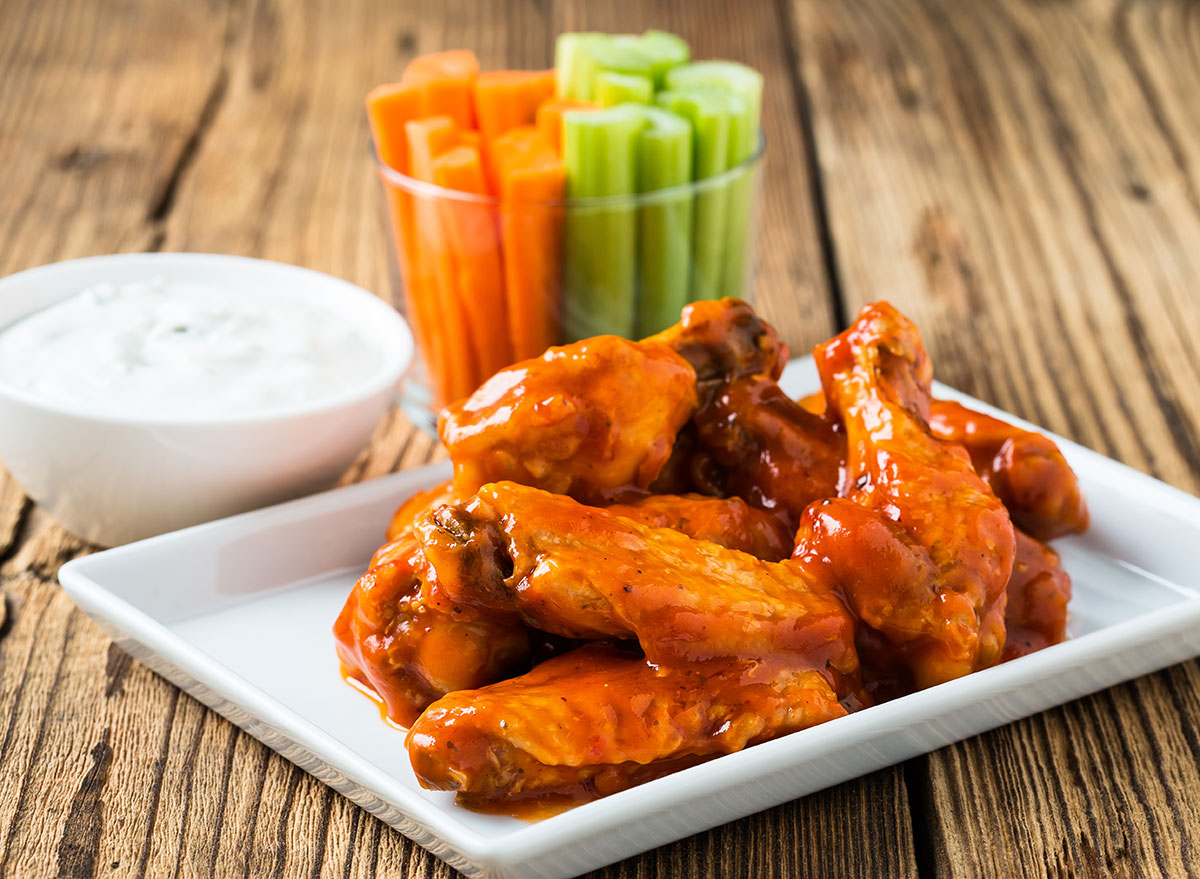
What you eat can have a significant effect on the bacteria in your gut. So, after giving up chicken, you can definitely expect your microbiome to change for the better—especially if you were previously consuming a lot of it.
Part of why this happens is that conventionally raised chickens are pumped full of antibiotics, and then when you eat one, those medications can kill off some of the beneficial bacteria in your gut.
A 2019 study published in the journal Nature found that switching to a diet without any meat can cause your microbiome to thrive in a number of new ways. Best of all, your gut will experience these benefits within just a few days of cutting out meat. Remember, though, that how your microbiome responds after you stop eating chicken will depend largely on what foods you replace it with. If you substitute fiber-rich vegetables, whole grains, nuts, and seeds, your gut is far more likely to be in good shape than if you start reaching for more processed vegetarian foods.
You may notice a mood change.
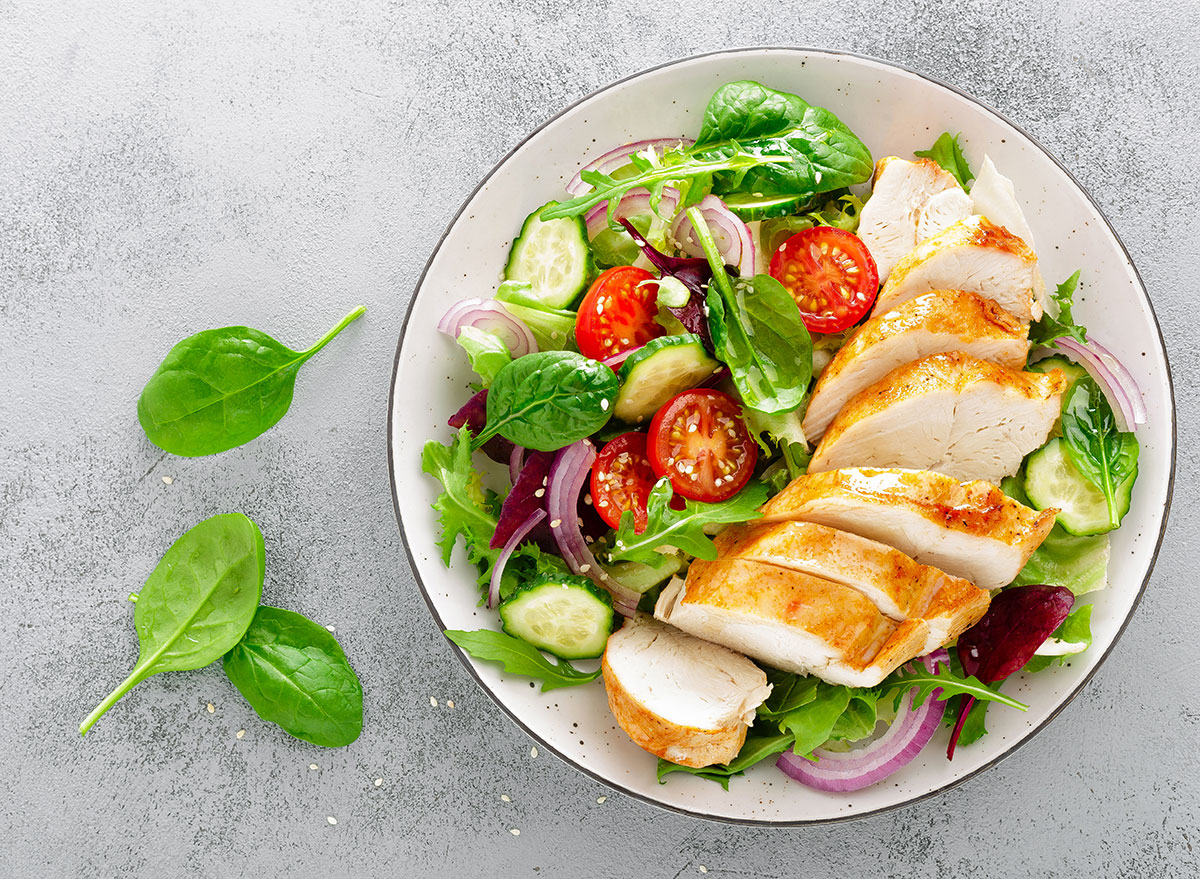
There’s no denying that chicken (and poultry in general) is one of the best sources of tryptophan, an essential amino acid that your body uses to produce the hormone serotonin. Serotonin is essentially the brain’s natural antidepressant, which explains why a tryptophan deficiency is often associated with a lower mood. Your body does not produce tryptophan on its own—hence, when you cut out chicken, there’s a slight possibility that you may feel a difference in your overall mood. Fortunately, there are other food sources of tryptophan you can focus on instead, such as bananas, chocolate, dried prunes, oats, peanut, and whole-grain bread.
You could lose weight.
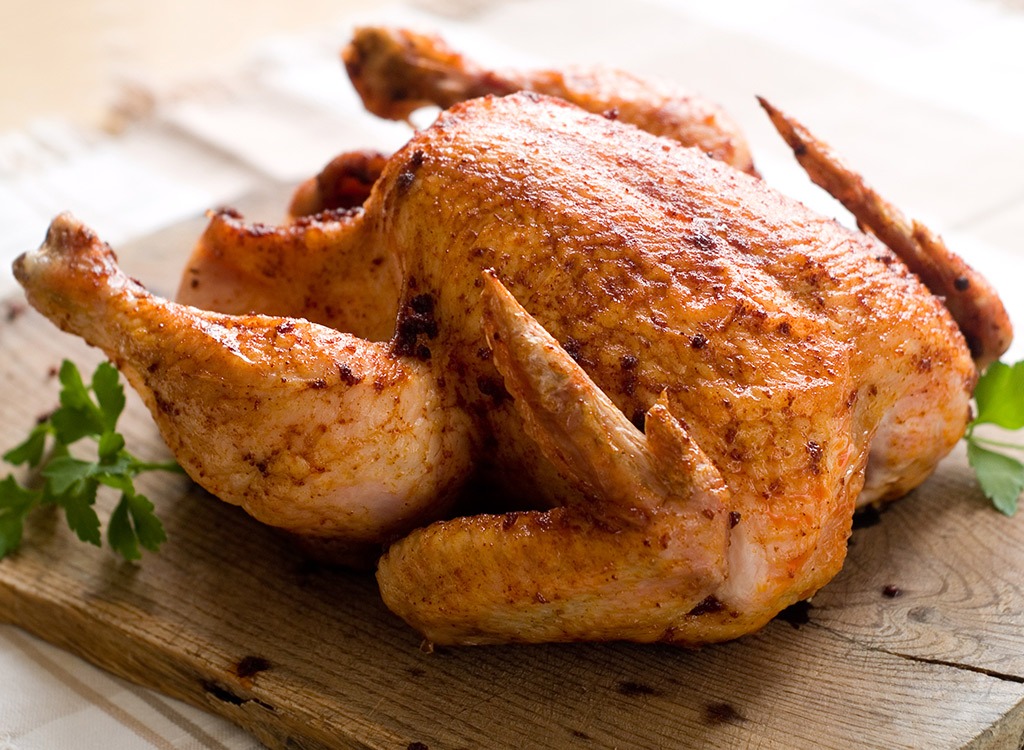
Chicken is considered a lean source of protein, with only 3.6 grams of fat per 100-gram serving. So, you might not drop a ton of pounds simply by skipping out on chicken. That said, especially if you were eating breaded or fried chicken rather than grilled or roasted, there’s a chance this dietary change could be advantageous for your weight loss strategy. A 2015 study published in the Journal of the Academy of Nutrition and Dietetics found that the average person who stopped eating meat lost about 10 pounds. Remember, though, losing weight by eliminating meat requires substituting it with nutritious plant-based foods.
You could get some protection against cancer.
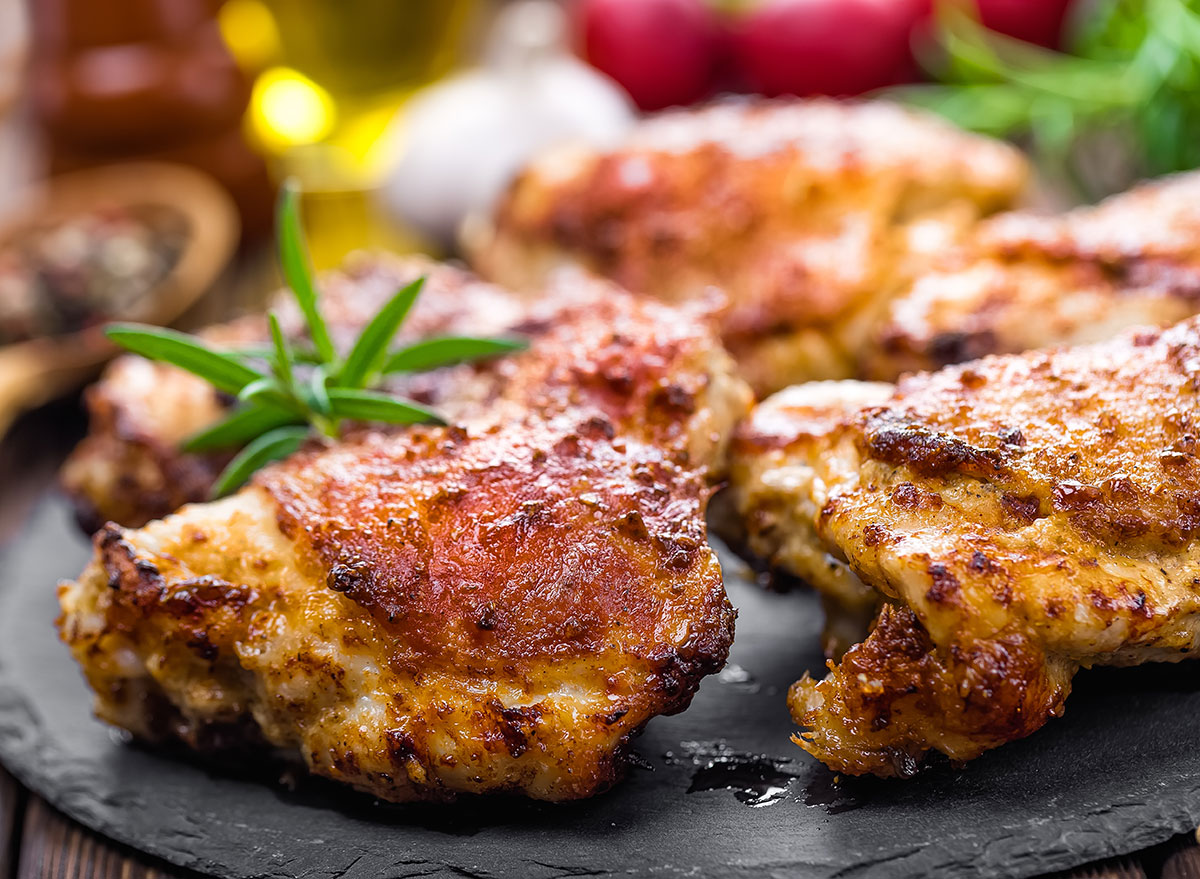
If you’re looking to decrease your risk of cancer, consider this: A 2008 study found that when people ditched meat from their diet, they experienced lengthening in their telomeres, the small end caps on DNA that prevent them from degrading over time. Seeing as the shortening of telomeres has been linked to prostate and breast cancers, it’s safe to say that this lifestyle change could very well offer you some decent protection against these diseases.
All that said, research has shown that chicken consumption is inversely associated with colorectal cancer, which is the third leading cause of cancer-related deaths in the U.S.
Your fertility may improve.

Women who consume at least 5% of their daily calories in the form of vegetable protein (rather than meat protein) have a 50% lower risk of ovulatory infertility than those who consume more meat protein, according to a 2008 study. That’s not to say that chicken is necessarily a bad choice if you’re trying to get pregnant. But if you’ve already decided to replace it with plant-based sources of protein like beans and nuts, it may give your fertility a boost.
Get even more healthy tips straight to your inbox by signing up for our newsletter!

